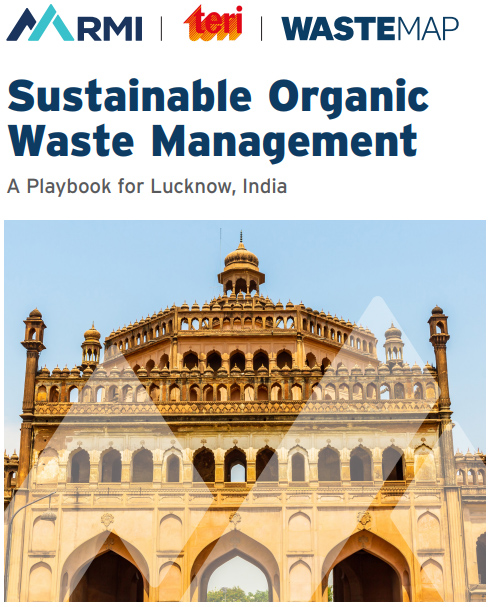Sustainable Organic Waste Management : A Playbook for Lucknow, India
In 2020, global municipal solid waste (MSW) generation reached 2.24 billion tonnes, a figure projected to rise to 3.88 billion tonnes by 2050. This increase will be largely driven by the fastest-growing regions, including sub-Saharan Africa, North Africa, South Asia, and the Middle East, where waste levels are expected to double or even triple.
As the world's most populous country, India currently produces 62 million tonnes of MSW annually, most of which ends up in landfills. By 2050, this number is expected to surge to 436 million tonnes. Improper waste disposal contaminates soil, air, and water, creating serious health and safety risks for nearby communities. Therefore, India must implement more sustainable waste management systems to effectively handle its growing waste volumes.
This playbook presents specific, actionable strategies for enhancing organic waste management in Lucknow, India. It first outlines the current MSW management practices, with an emphasis on organic waste. It then identifies opportunities across the waste management value chain to improve organic waste recovery and reduce MSW-related emissions. The strategies are structured along the waste management value chain, addressing waste generation, collection and transport, recovery and treatment, and disposal.
Additionally, a crosscutting section explores policy and regulatory frameworks, data transparency, financing, and stakeholder awareness and capacity-building. Together, these strategies offer a comprehensive approach to organic waste recovery and emission reduction in the waste sector beyond the point of generation.

